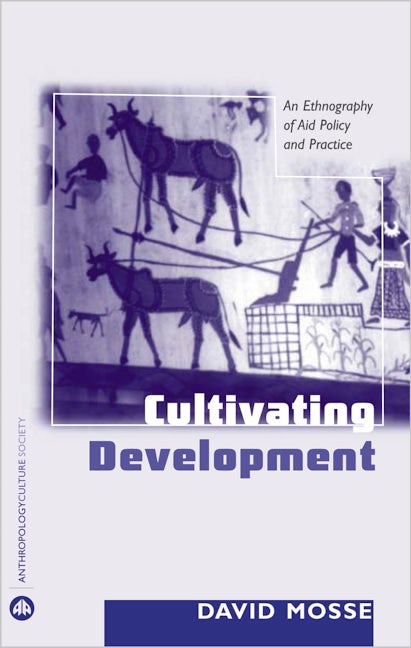
Cultivating Development
An Ethnography of Aid Policy and Practice
What if development agencies and researchers are not driven by policy? Suppose that the things that make for 'good policy' - policy that legitimises and mobilises political support - in reality make it impossible to implement?
By focusing in detail on the unfolding activities of a development project in western India over more than ten years, as it falls under different policy regimes, this book takes a close look at the relationship between policy and practice in development. David Mosse shows how the actions of development workers are shaped by the exigencies of organisations and the need to maintain relationships rather than by policy; but also that development actors work hardest of all to maintain coherent representations of their actions as instances of authorised policy. Raising unfamiliar questions, Mosse provides a rare self-critical reflection on practice, while refusing to endorse current post-modern dismissal of development.
By focusing in detail on the unfolding activities of a development project in western India over more than ten years, as it falls under different policy regimes, this book takes a close look at the relationship between policy and practice in development. David Mosse shows how the actions of development workers are shaped by the exigencies of organisations and the need to maintain relationships rather than by policy; but also that development actors work hardest of all to maintain coherent representations of their actions as instances of authorised policy. Raising unfamiliar questions, Mosse provides a rare self-critical reflection on practice, while refusing to endorse current post-modern dismissal of development.
David Mosse is Professor of Social Anthropology at SOAS, University of London. He is author of The Rule of Water (Oxford University Press, 2003), Cultivating Development (Pluto, 2004) and The Aid Effect (Pluto, 2005).
'A superb book, one of those rarities that can change entire ways of thinking' - Scott Guggenheim, Lead Social Scientist, The World Bank
'Strongly argued, vividly illustrated and fluently written. Highly recommended' - Amita Baviskar, Visiting Professor, Department of Cultural and Social Anthropology, Stanford University
'Any development professional will find scenarios that are recognisable here. As the many entry points slowly build up into a rich and thick description of the project' world, it becomes clear that this candid depiction forces us to engage with candid questions especially about the book's two principal concepts: practice and policy' - Ingie Hovland, Development Policy Review
'A brave and crucial work which dismantles the accepted orthodoxies about the making of development by development agencies. Everyone with an interest in development - whether practitioner or critic - should read this book' - Dinah Rajak, Development in Practice
Acknowledgements
Glossary and abbreviations
1. Introduction: The Ethnography of Policy and Practice
2. Framing a Participatory Development Project
3. Tribal Livelihoods and the Development Frontier
4. The Goddess and the PRA: Local Knowledge and Planning
5. Implementation: Regime and Relationships
6. Consultant Knowledge
7. The Social Production of Development Success
8. Aid Policy and Project Failure
9. Aspirations for Development
10. Conclusions and Implications
Bibliography
Index
Glossary and abbreviations
1. Introduction: The Ethnography of Policy and Practice
2. Framing a Participatory Development Project
3. Tribal Livelihoods and the Development Frontier
4. The Goddess and the PRA: Local Knowledge and Planning
5. Implementation: Regime and Relationships
6. Consultant Knowledge
7. The Social Production of Development Success
8. Aid Policy and Project Failure
9. Aspirations for Development
10. Conclusions and Implications
Bibliography
Index
Published by Pluto Press in Nov 2004
Paperback ISBN: 9780745317984
eBook ISBN: 9781783713646
eBook ISBN: 9781783713646
135mm x 215mm

